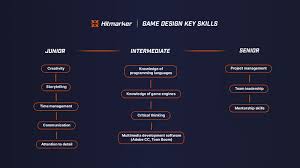Ethical Choices in Games: Do They Really Matter?

In recent years, the gaming industry has seen a surge in popularity, with more and more players engaging in immersive virtual worlds that offer a wide range of choices and experiences. One of the most prominent features in modern games is the option to make ethical decisions that can impact the storyline and outcome of the game. But the question remains: do these ethical choices really matter?
Ethical decision-making in games has become a hot topic better minecraft server hosting among developers and players alike. Many games now offer players the chance to make decisions that can have far-reaching consequences, such as choosing between saving a character’s life or sacrificing them for the greater good. These choices are often presented in a morally grey area, forcing players to consider the consequences of their actions and grapple with the ethical implications.
But do these choices really matter in the grand scheme of things? Some argue that ethical decisions in games are merely superficial, with the outcome predetermined by the developers and the storylines ultimately leading to the same conclusion regardless of the choices made. However, others believe that ethical decisions in games can have a real impact on the player’s experience, allowing them to explore different moral dilemmas and see the consequences of their actions play out in the game world.

One of the key benefits of incorporating ethical choices in games is that it adds an extra layer of depth and replayability to the gaming experience. By giving players the power to shape the narrative and influence the outcome of the game, developers can create more engaging and immersive worlds that resonate with players on a deeper level. In addition, ethical choices can help players develop their problem-solving skills and critical thinking abilities, as they are forced to consider the consequences of their decisions and think about the wider impact of their actions.
Moreover, ethical decision-making in games can also spark important conversations about real-world issues and encourage players to think about their own values and beliefs. By presenting players with complex moral dilemmas and challenging them to make difficult choices, games can help foster empathy and understanding among players, as they are forced to consider the perspectives of others and navigate a world filled with ethical ambiguity.
In conclusion, ethical choices in games do matter, not only in terms of gameplay and storytelling but also in terms of the impact they can have on players’ emotions and beliefs. By challenging players to confront difficult decisions and explore complex moral issues, games have the power to ignite important conversations and inspire personal growth. So next time you’re faced with a moral dilemma in a game, remember that your choices do matter – both in the virtual world and beyond.

